The film “Beyond the Success of Kotlin”: the idea, creative processes, Euro-trip, and Polish ketchup
The EngX Community team released the documentary “Beyond the Success of Kotlin.” In the film, the creators of Kotlin shared their reflections on how the language was developed at JetBrains, how it was accepted by the dev community, and then how it was recognized as the official language for Android app development by Google.
We spoke with community leaders Aliaksei Kartynnik and Viktar Shalenchanka about the filmmaking process: from the concept and role distribution within the team to the Euro-trip and Polish ketchup.
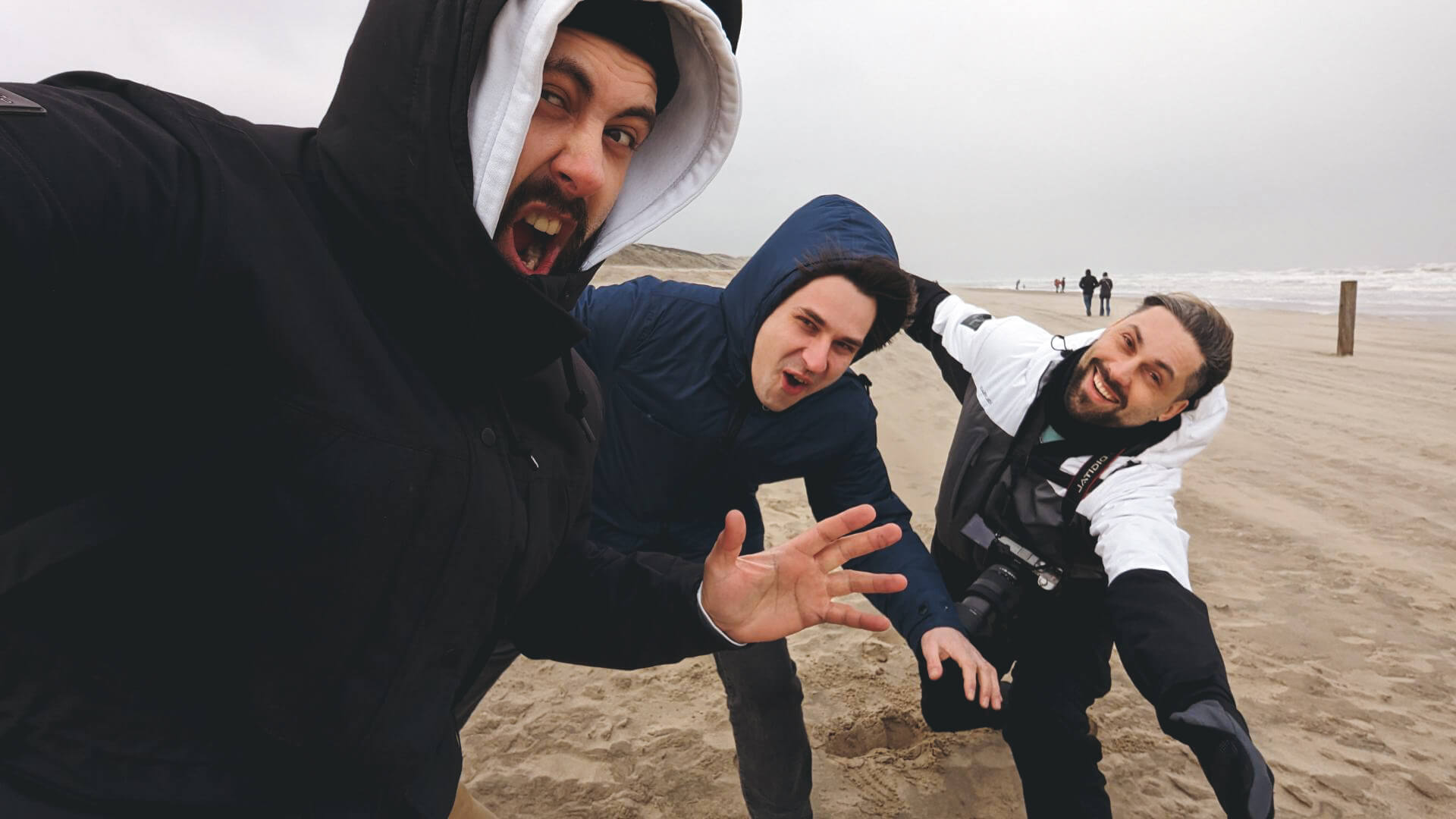
“We worked simply because we liked the idea”
— How did the idea for creating the film come to you?
Aliaksei: The whole team had long wanted to work on documentaries.
Viktar: And we had acquaintances who helped us reach out to the creators of Kotlin.
— How did you distribute roles within the team?
Aliaksei: We handled everything at once. Viktar managed the process and the communications with people. He knows how to ask questions without a hint of subjectivity. I would also like to mention the other guys who worked on the film. I was on the editorial team with Artur Gainullin and Artem Malyshev: we did the scriptwriting and research to prepare questions. Pavel Sudakou handled the offline filming. Later, they edited the film together with Aliaksandra Zhukava and Anton Komarov.
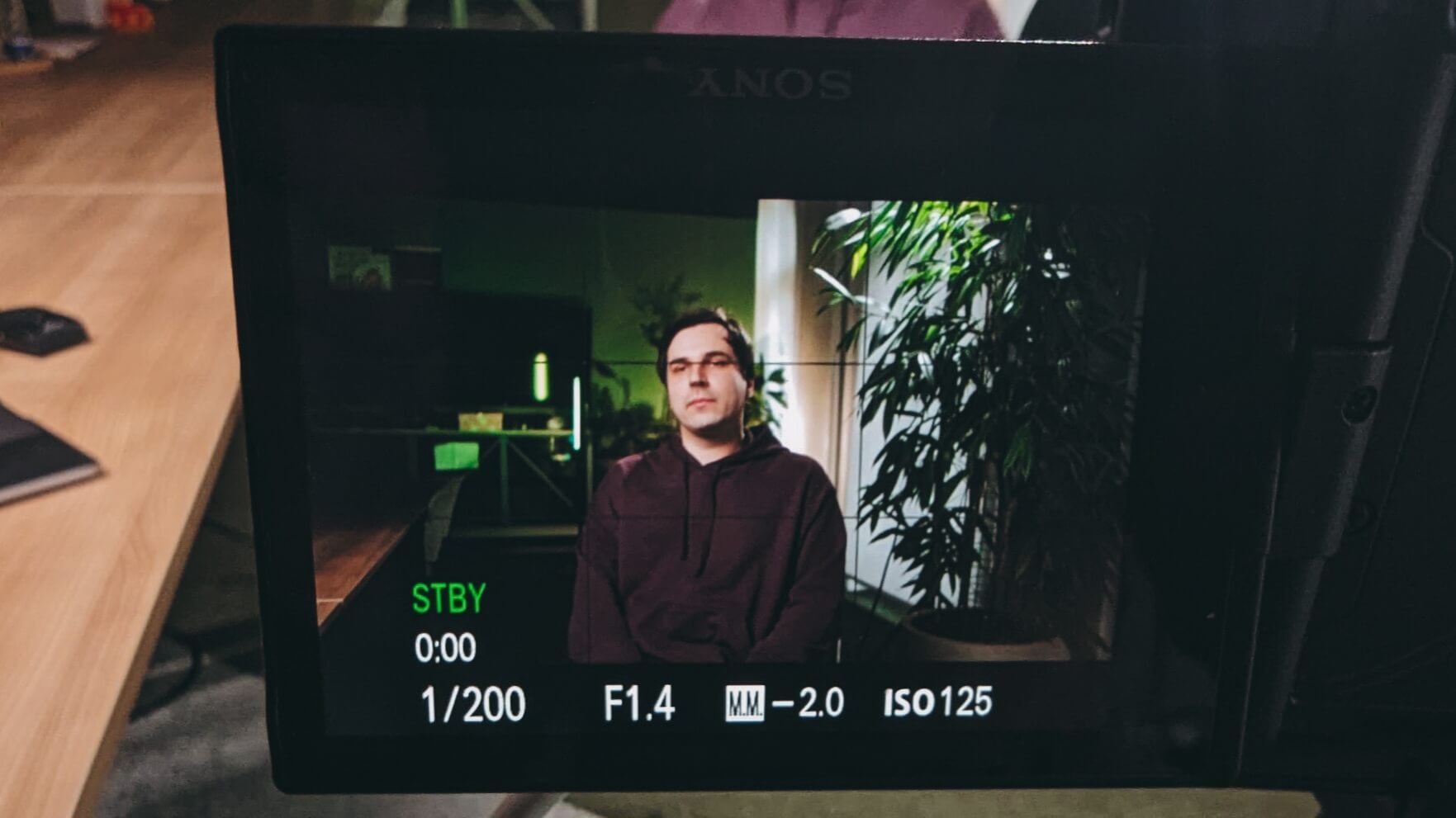
Viktar: And Anton created the music for the film.
Aliaksei: Creating the film involved a lot of volunteer work. We were very passionate. And there were people who worked with us for no pay simply because they liked the idea.
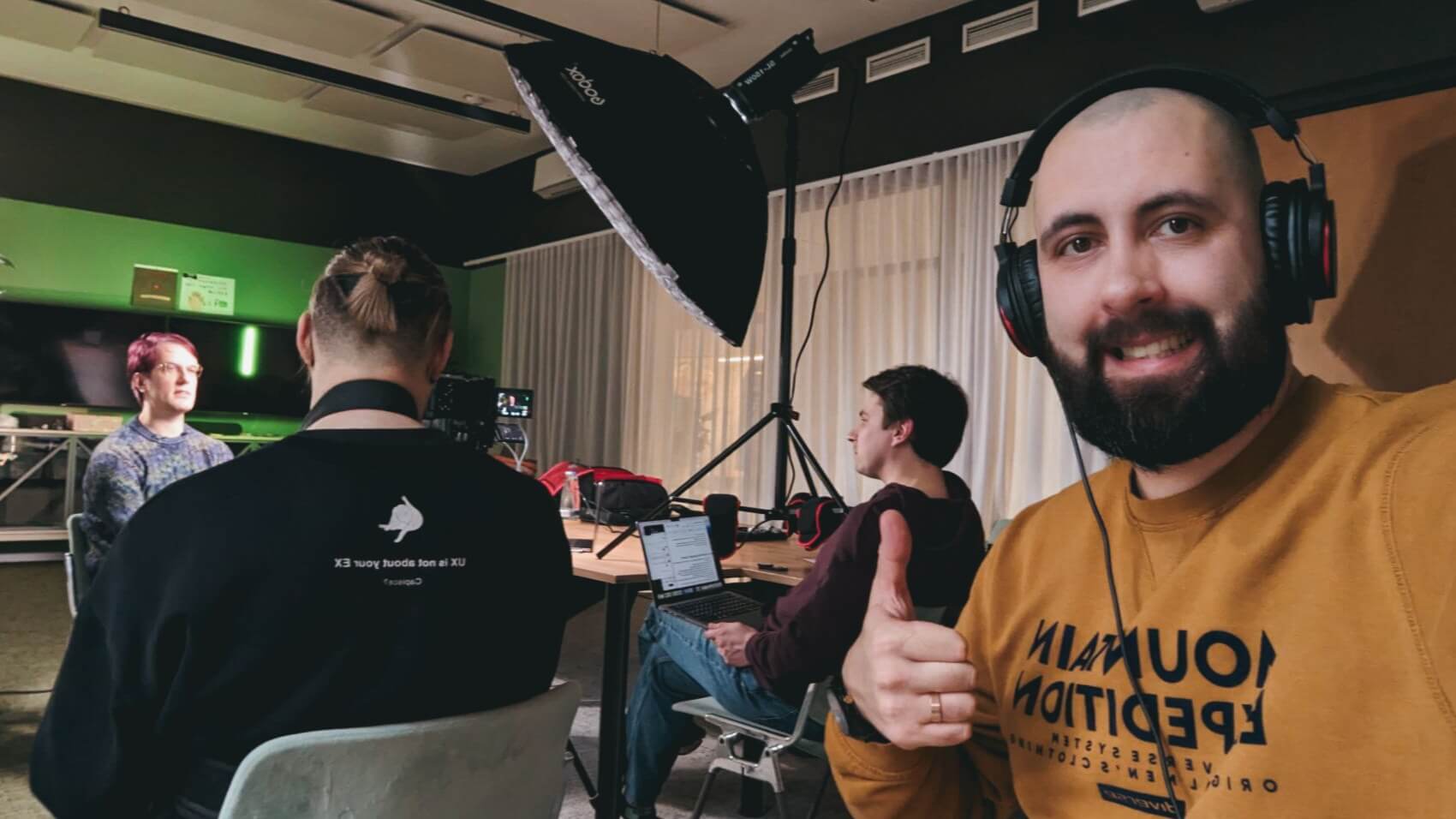
“We had a Euro-trip by car”
— Where were the film shoots held?
Viktar: We had a car Euro-trip for several days: from Poland to Munich, from Munich to Amsterdam, from Amsterdam to the Hague, and then back. There were three of us on the journey: Aliaksei, Pavel Sudakou, and me. There were also shoots in London, Vilnius, and online.
Aliaksei: We didn’t reach London with the filming there. Our acquaintances from the “Podlodka” podcast helped us with that.
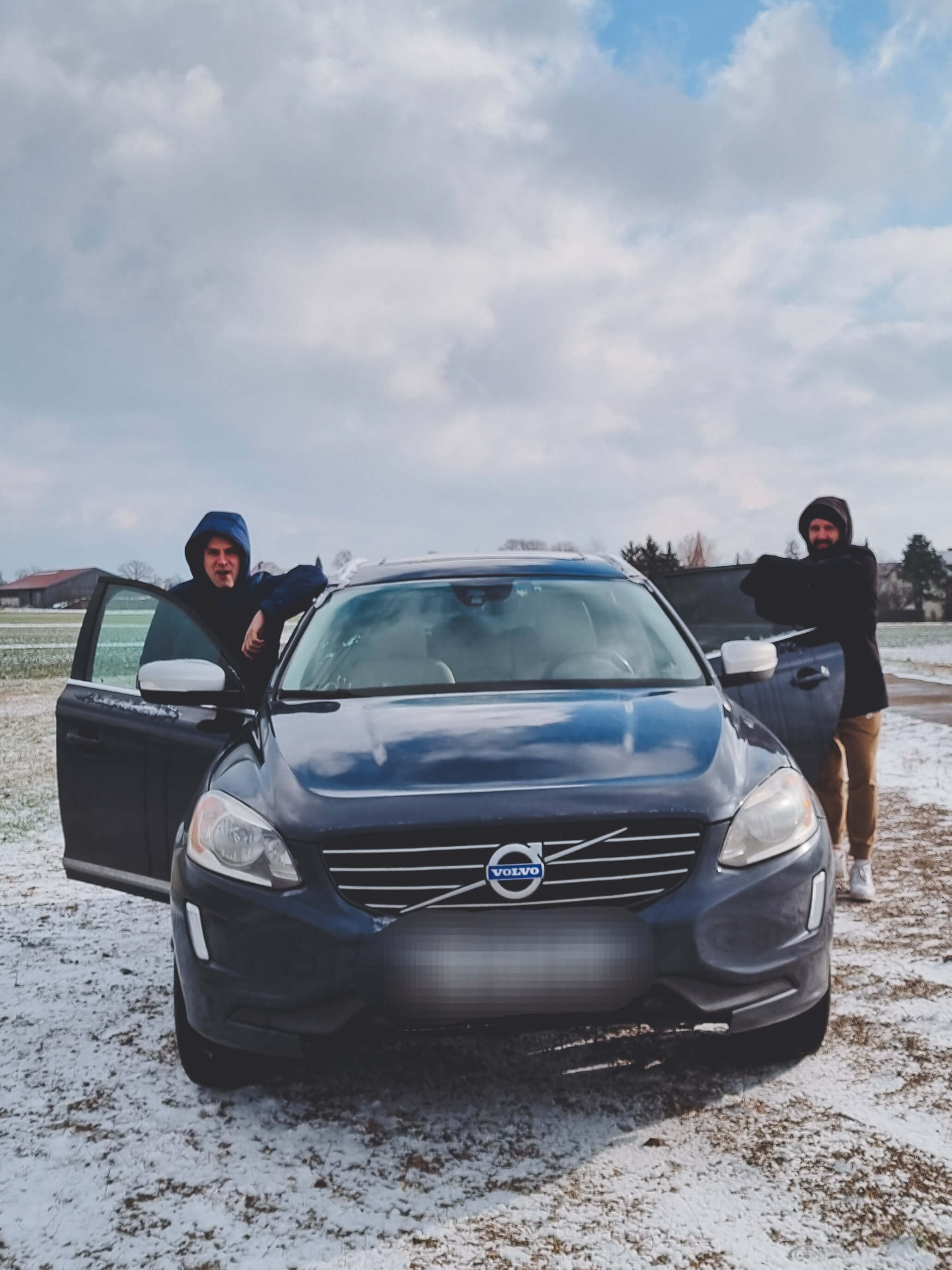
“Creative processes differ from developer processes”
— How long did you work on the film?
Aliaksei: Six months. First came the preparation. In 4 days, we shot about 70% of the material. Many think that filming is almost all the work. But no. We filmed for 6 hours with each speaker offline. Then we had to choose the 10 juiciest minutes for each and think through the script so that the video was dynamic, lively. It took 4 months. And another month for editing.
Viktar: This was our first documentary film. I think the filming of the next one will go faster. We wanted to objectively show the process of creating Kotlin, so it took a long time to produce.
Aliaksei: Yes, and we realized that next time we will structure the processes differently from the very beginning — we will distribute roles within the team. This time, there were disagreements, but I hope that with the release of the film, we will all reconcile.
Viktar: We operated on the principle that we were a free creative team, but it turned out that each of us had our own vision. Creative processes are very different from developer processes.
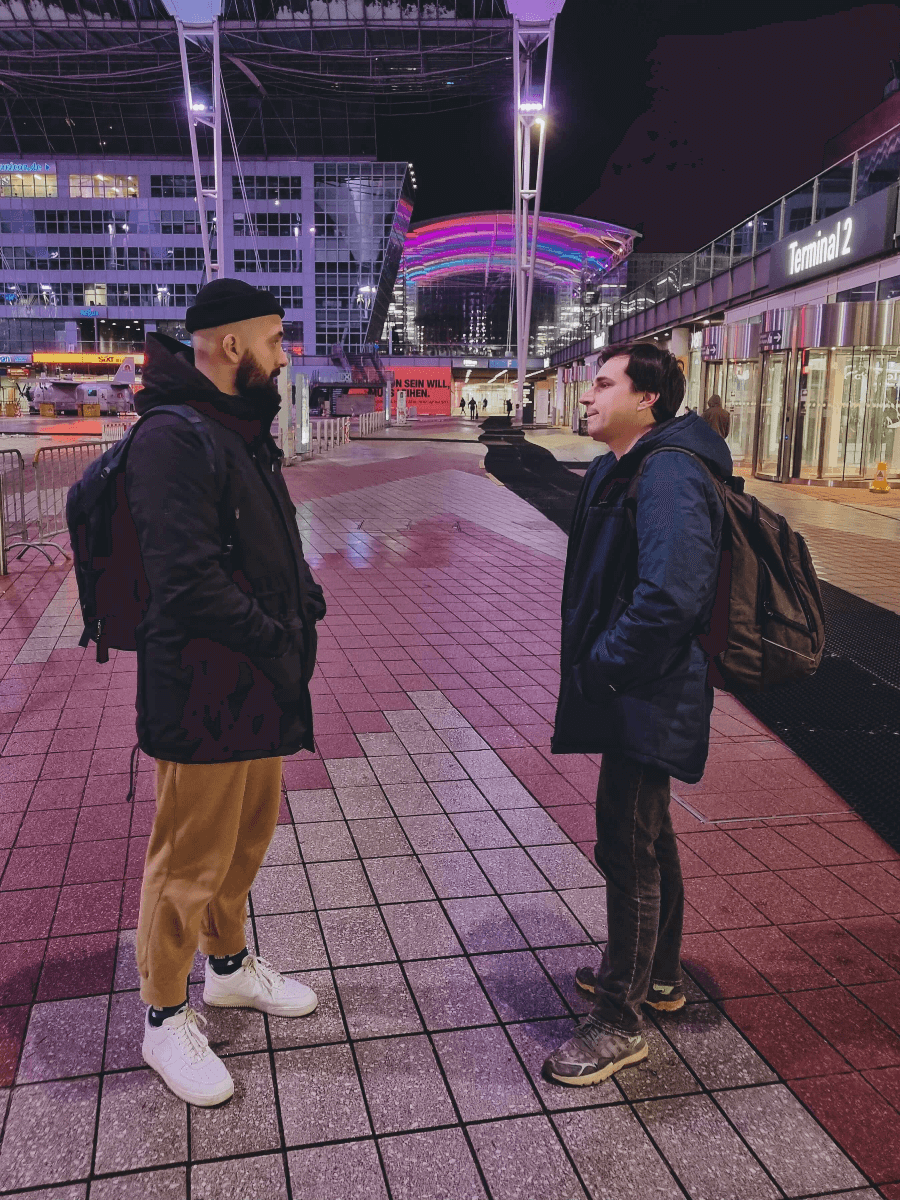
“In the definition of the word ‘challenge,’ you would find our process of working on this film”
— What impressed you during the shootings?
Aliaksei: The film turned out very cool. I was impressed by the fact that we did a lot of work and it turned out to be worthy.
Viktar: But the process itself was also very unusual and interesting for us. Like a breath of fresh air.
Aliaksei: Field filming brings the team together. You travel together, conduct a shoot with someone, go somewhere to eat in the evening, sleep, and the next day, you head to the next city. Along the way, we decided how to change the script — filming never goes strictly according to plan. These are the challenges of offline film shoots. But also, the guys who were with us online supported us a lot during the filming — they sat with us for 6 hours on the laptop. We felt like a real team.
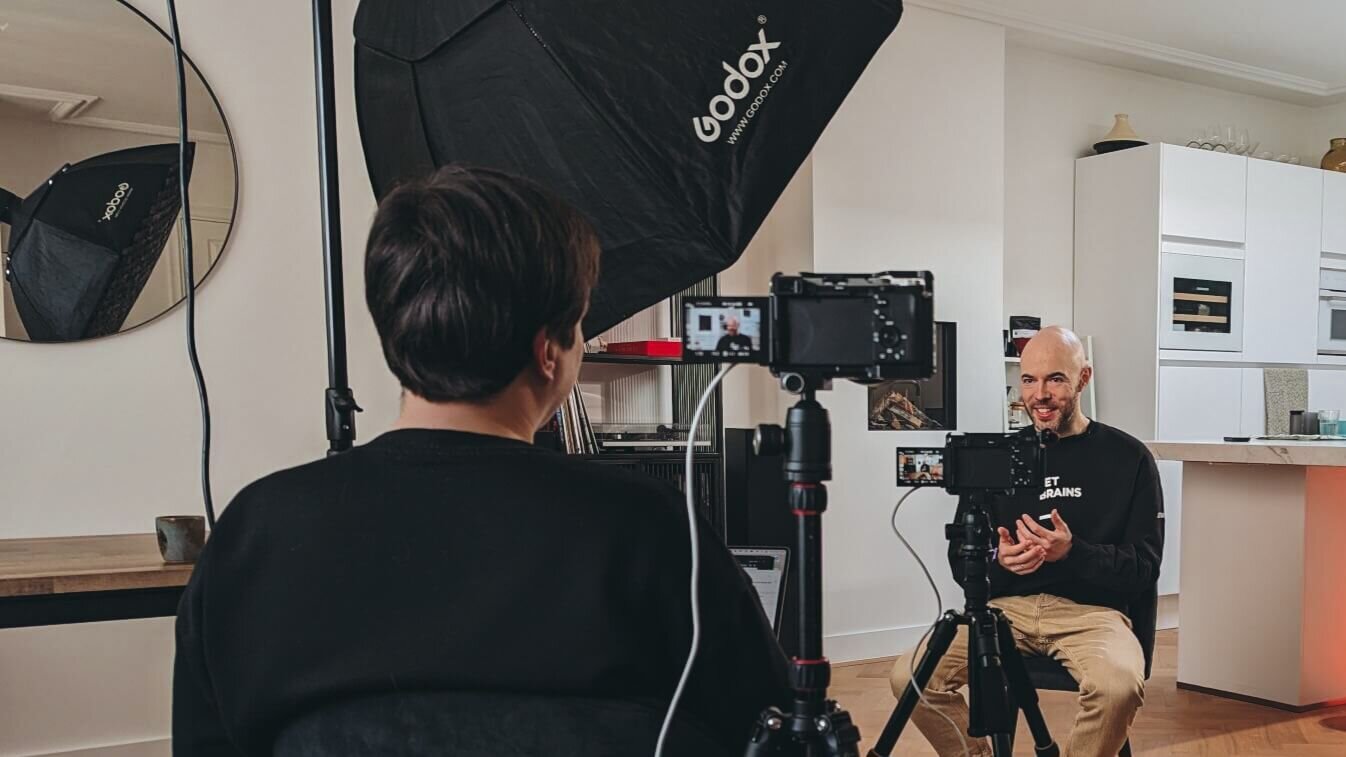
Viktar: If I were creating a dictionary based on my life, in the definition of the word “challenge,” you would find our process of working on this film.
Aliaksei: We rented an apartment and were going to shoot there with Dmitry Jemerov (co-author of the Kotlin in Action book, former JetBrains employee). And 2 minutes before we were supposed to start recording, the grandmother-owner of the apartment forbade us to shoot there. We wrote to the director of JetBrains — told him that we were in Munich shooting a documentary about Kotlin with their former employee and asked for a space. Within 15 minutes, he replied “come to the office.“ They helped us a lot. I was pleasantly surprised by that.
Viktar: I also realized during the process of working on the film that creating a programming language is simple. But making it so that people use it is a difficult task. The creators of Kotlin managed to both write the language and build an infrastructure around it. It became the main language for Android development. That’s very cool. And it shows that the community is capable of a lot.
Aliaksei: We wanted to show how the language was able to develop into a major market player and a corporate language.
Viktar: And to convey to the viewer the vibe of the group’s work on creating the language, to show the whole story.

“Indian bloggers ‘nurtured’ tech specialists”
— What would you like to make documentary films about in the future?
Viktar: I would like to make a documentary about tech bloggers in India. They have huge views. A she-wolf nurtured Romulus and Remus, and then they founded Rome. Similarly, Indian bloggers “nurtured” tech specialists. Many developers started their journey from videos of Indian programmers, who explain the principles of the compiler near the board. I would like to bring together Indian teachers and developers who learned from their lectures and now work in cool companies. It would be like a reunion.
Bonus question
— Aliaksei, I know you live in Poland. Have you seen the “Kotlin” ketchup in stores?
Aliaksei: No, I first saw it in our documentary.
Editor’s note: Aliaksei did his homework and found the “Kotlin” ketchup on the shelves of stores in Poland.
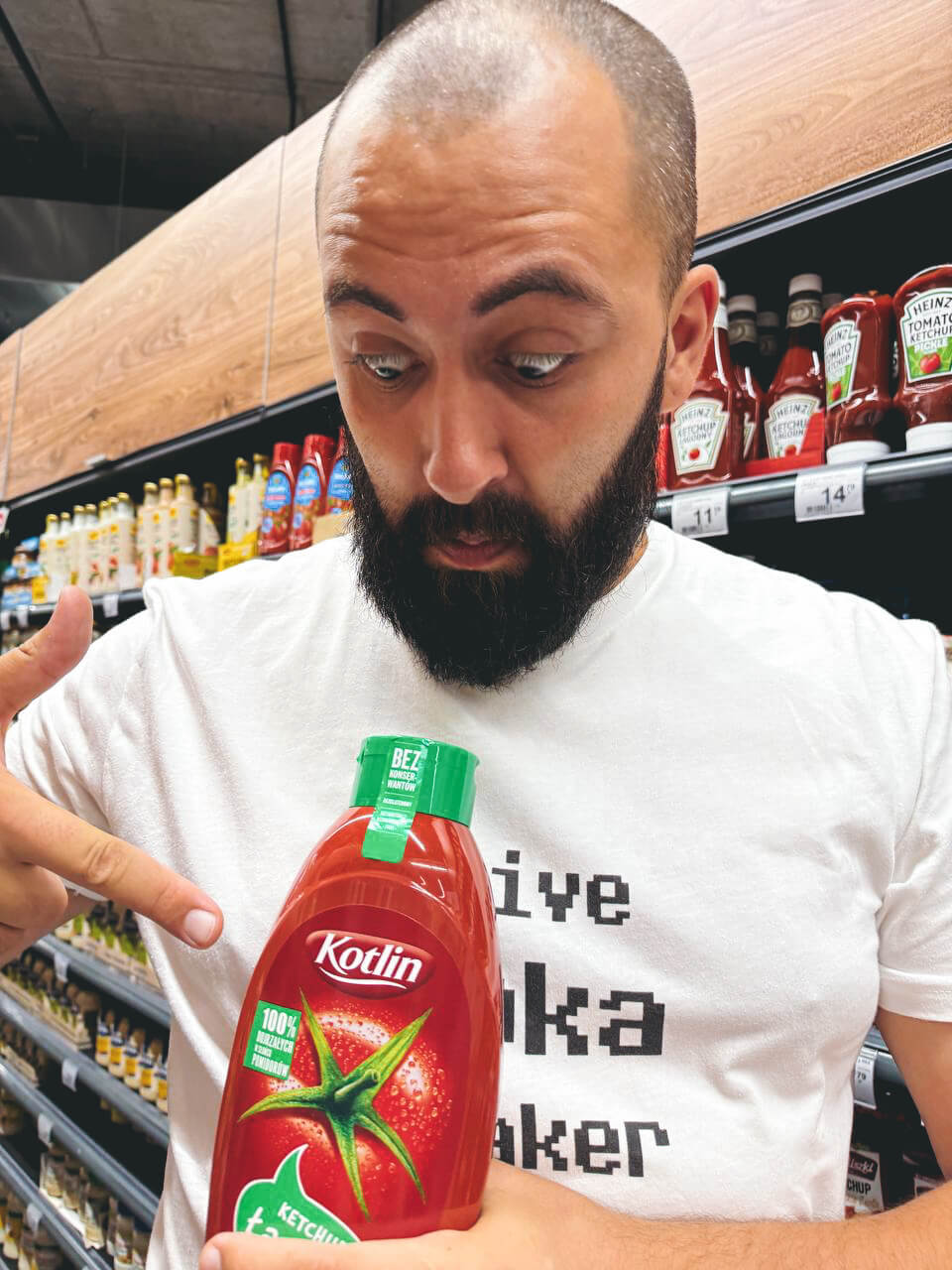
Reader homework: watch the documentary “Beyond the Success of Kotlin” and give it likes.


.png)
